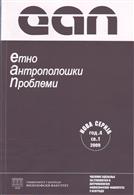Društveno pamćenje i primenjena kritika: O pretvaranju poezije u ideološku batinu
Social memory and applied criticism: On turning poetry into an ideological beating stick
Author(s): Gordana ĐerićSubject(s): Studies of Literature, Cultural Anthropology / Ethnology, Nationalism Studies, Politics of History/Memory
Published by: Филозофски факултет, Универзитет у Београду
Keywords: social memory; Yugoslavian nationalism; applied criticism; classics; reinterpretation; revolutionary realism; Milan Bogdanović;
Summary/Abstract: The subject of this text is the social memory, which the author understands as the consequence of complex relationships of modern politics, history and cultural production in the broadest sense. As for the majority of authors who engage in social memory, for her this phenomenon is inseparable from the process of creating a nation, as well. In the context of creating a nation in Eastern Europe the conditionality of these phenomena is recognized through the specific part that the language and literature played in those processes. Therefore, in this region, the hierarchy of power reflected itself always, maybe more prominently than anywhere else, in the filed of controlling the social memory, and particularly in controlling the interpretation of old literary works. Furthermore, the power in that field visibly affirmed itself. By connecting her research to Yugoslavian nation, the period immediately after the World War Two and the function of literary criticism in establishing the Yugoslavian canon for the interpretation of the past, the author examines in this text on of the ways of shaping the social memory in the time of active creation of the Yugoslavian nation. The focus of research is on the social conditionality of constructing memory from the political anticipation of contemporary and future needs of the society. By re-examining the thesis of social memory as an expression of the state’s aspiration to explain to the nation its past and to adjust it to current needs, the author in her research follows the after-war reinterpretation of several classic authors who entered the Yugoslavian canon of interpreting the past.
Journal: Етноантрополошки проблеми
- Issue Year: 4/2009
- Issue No: 1
- Page Range: 63-85
- Page Count: 23
- Language: Serbian

